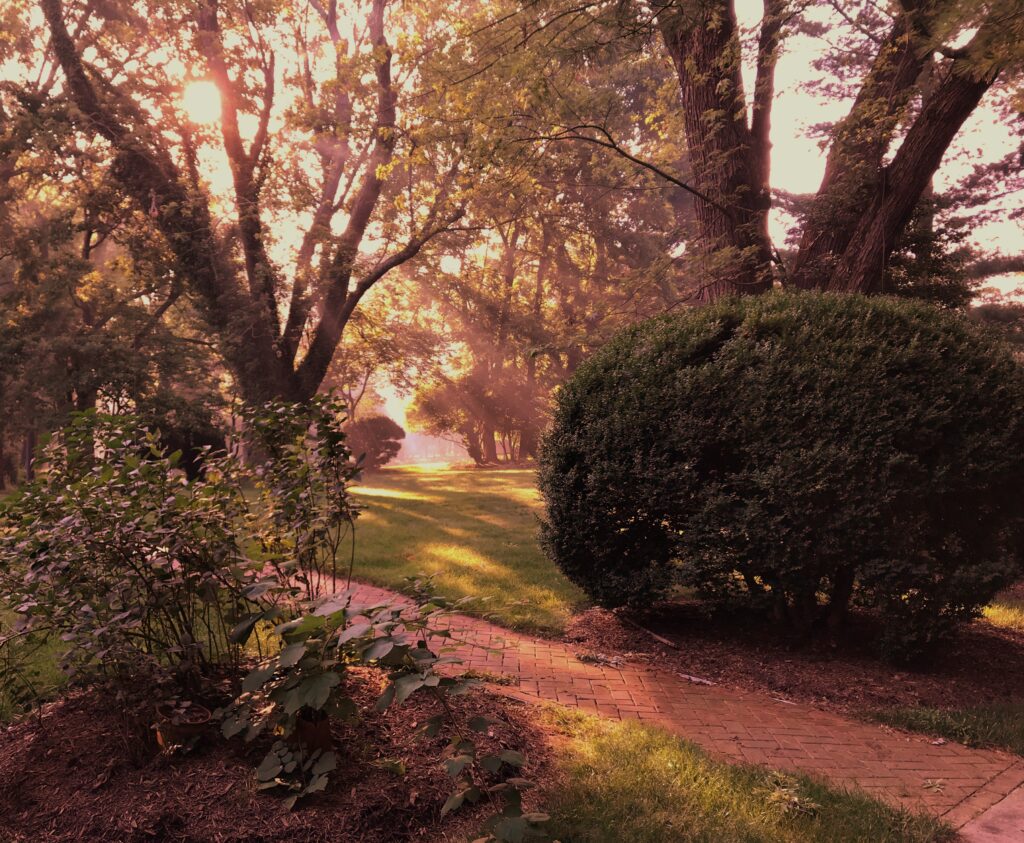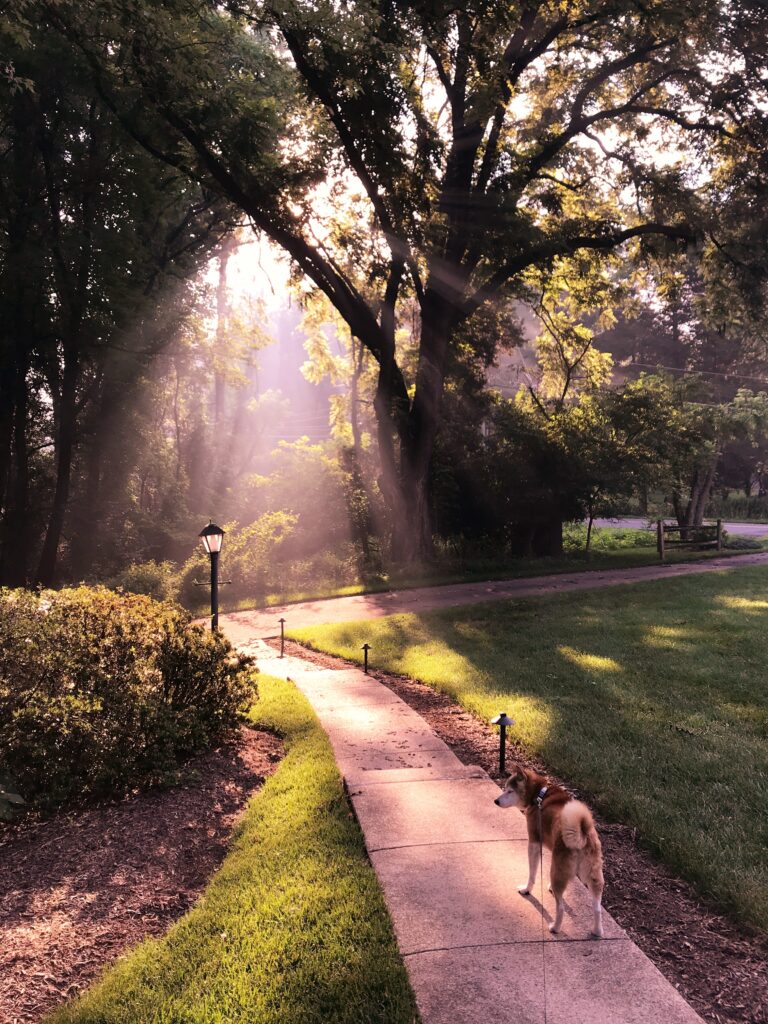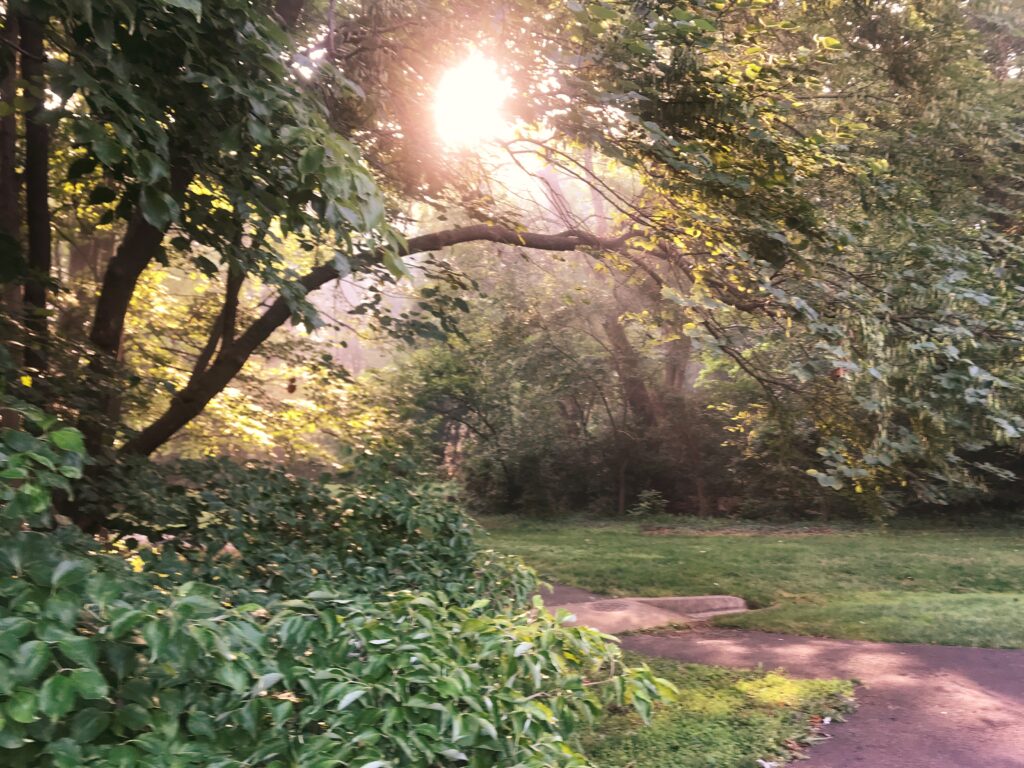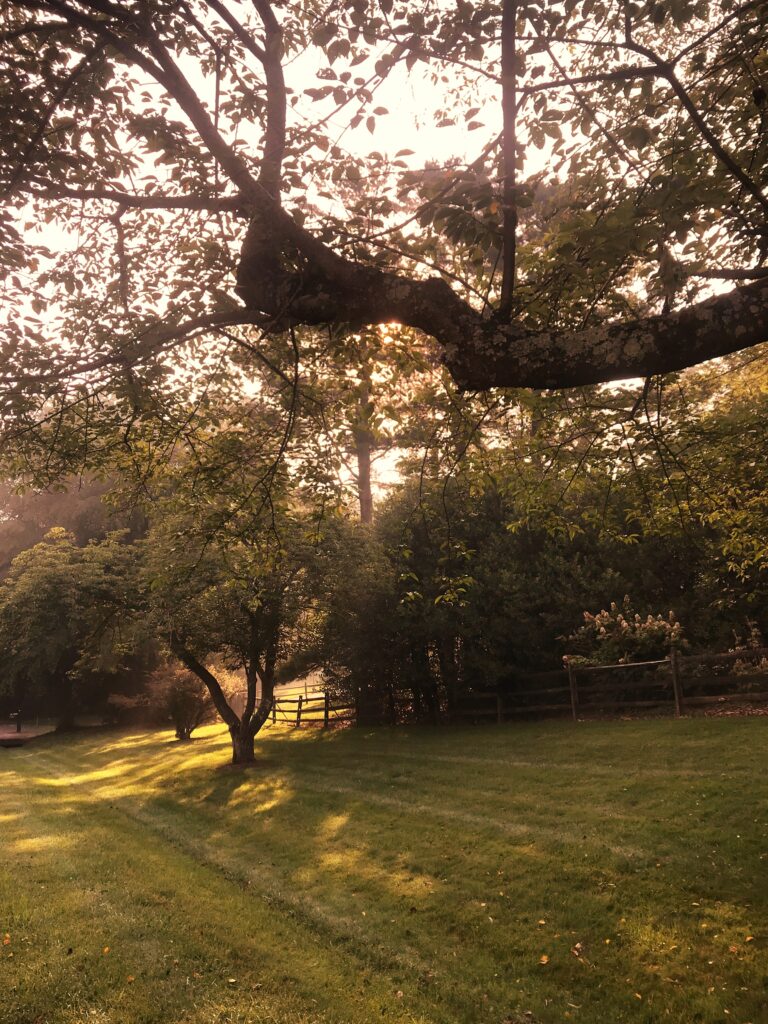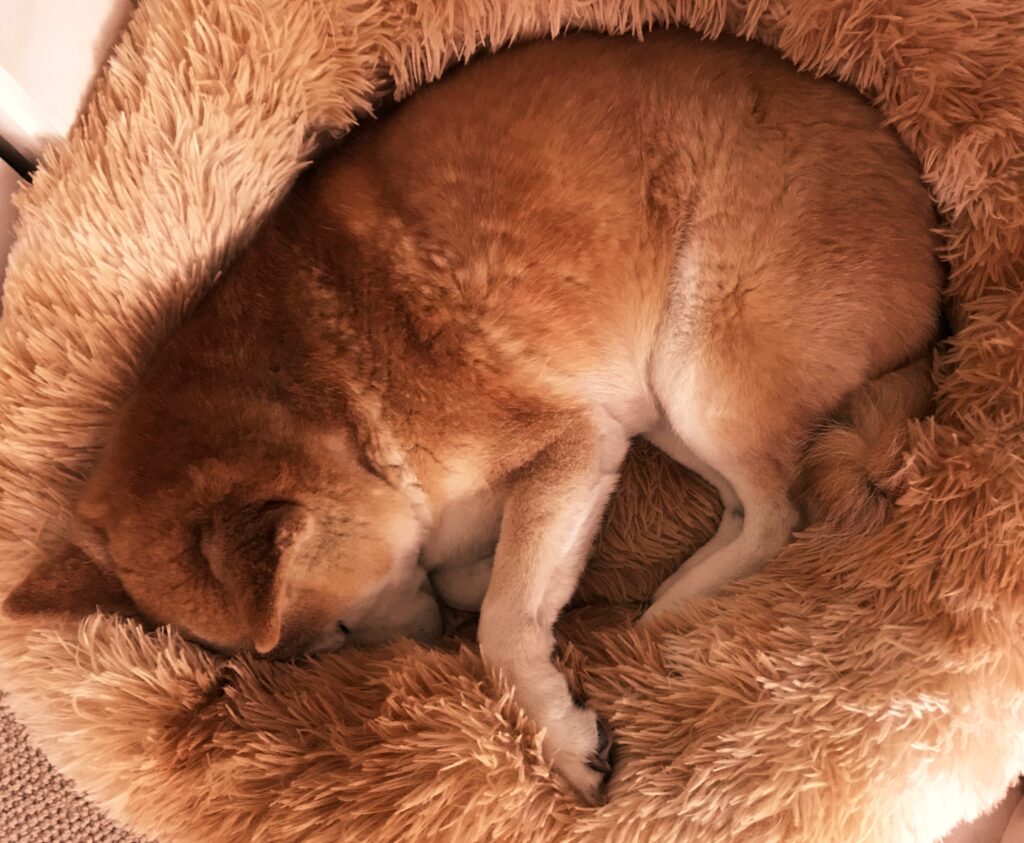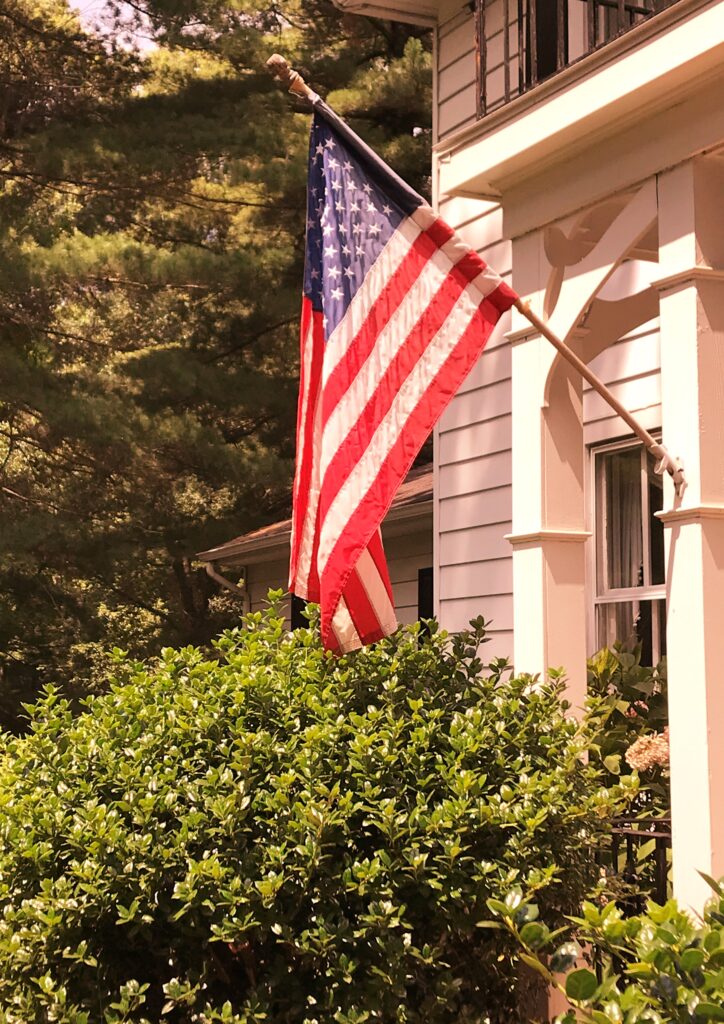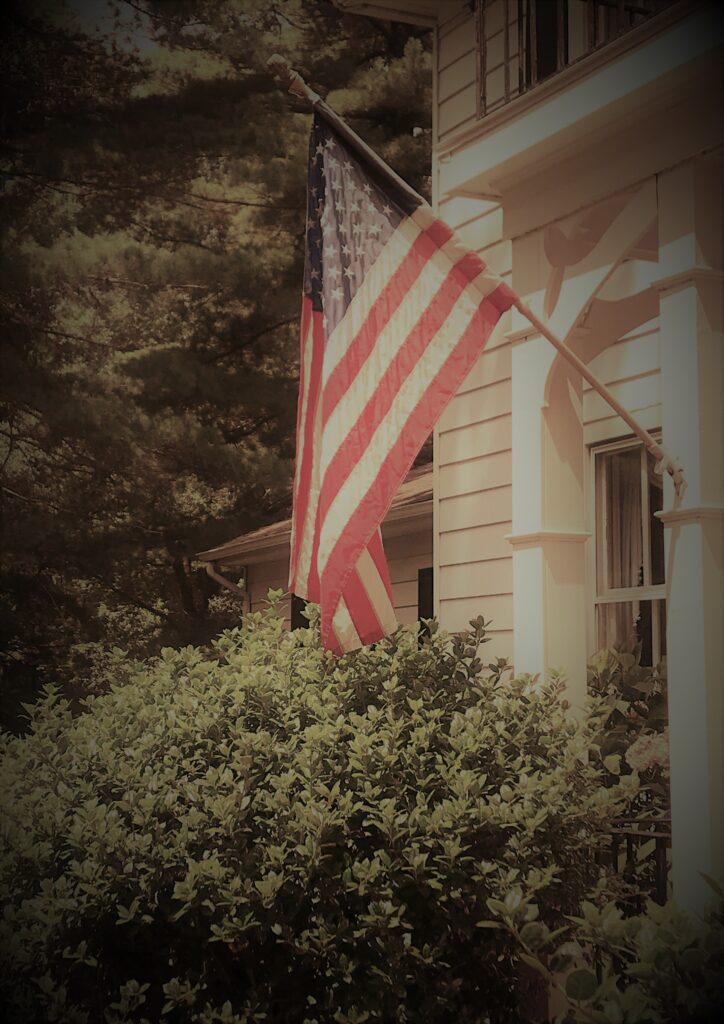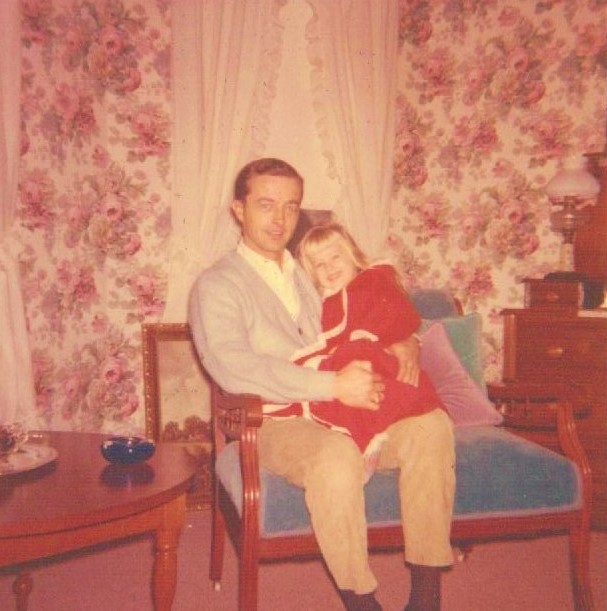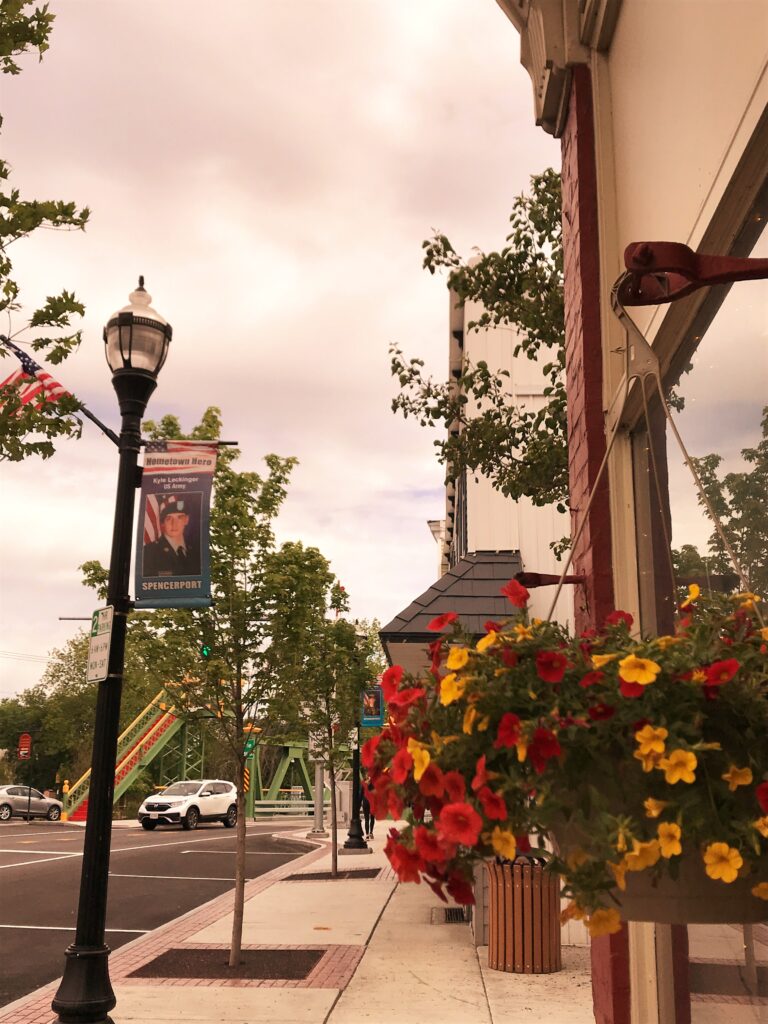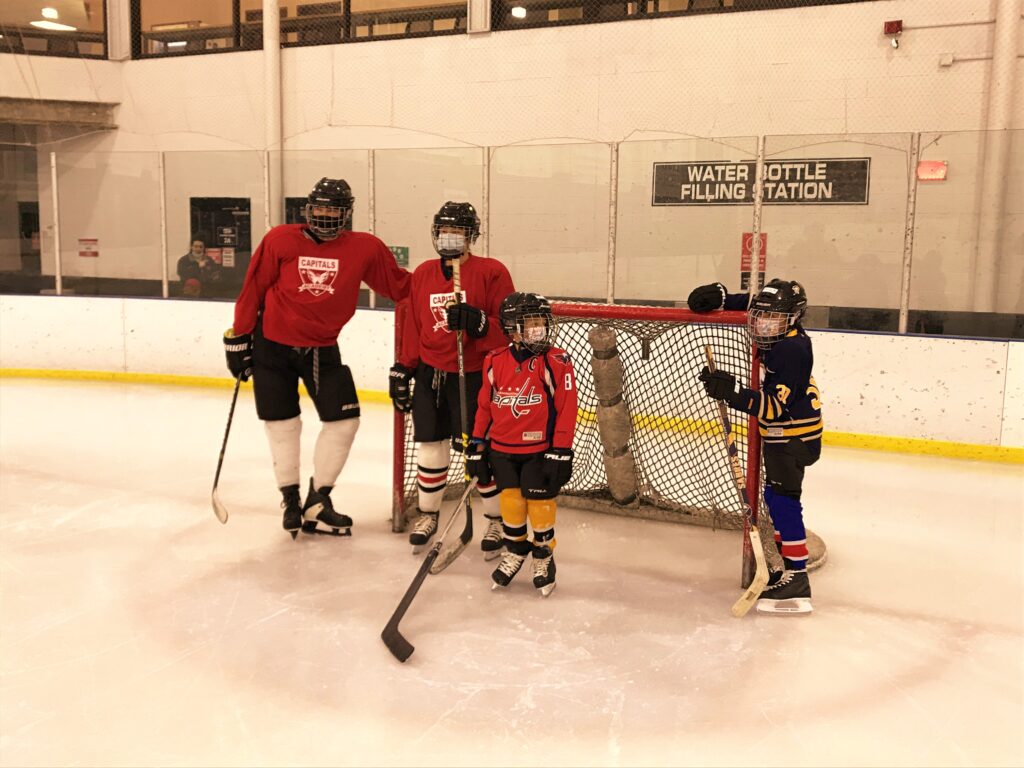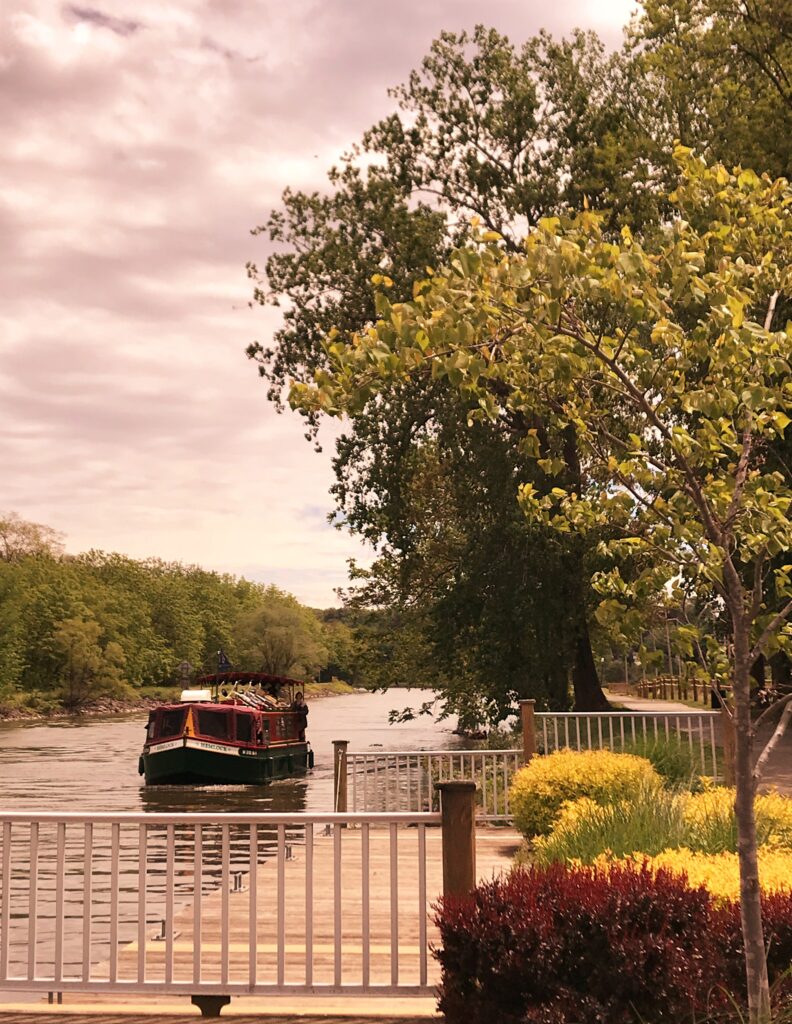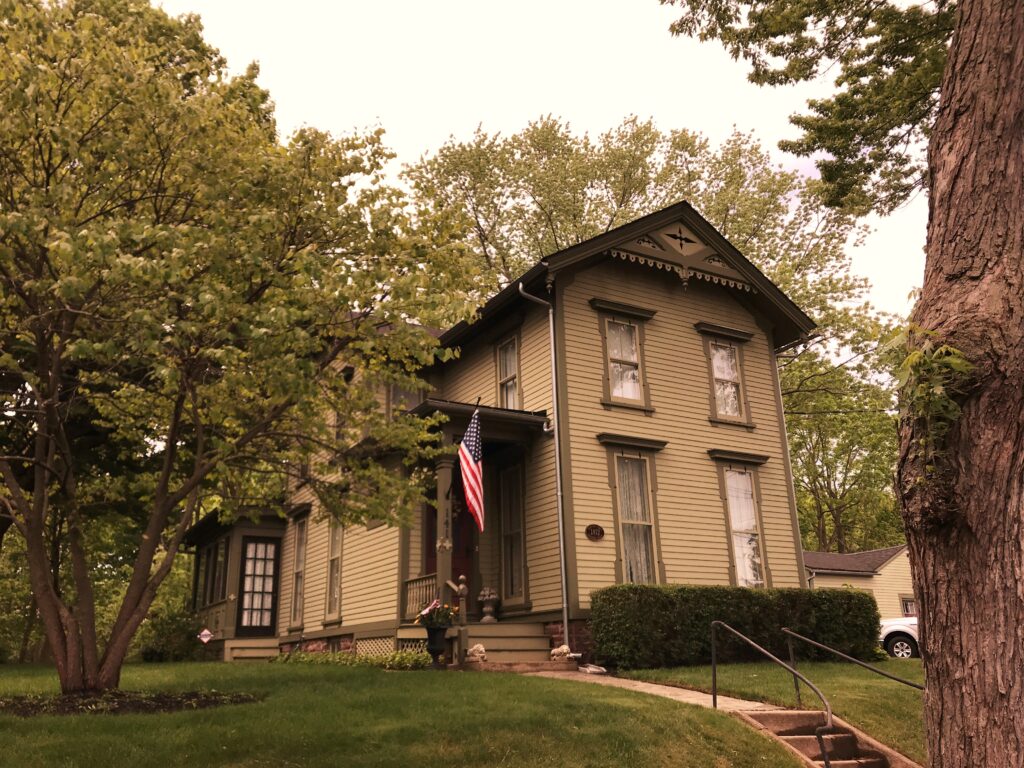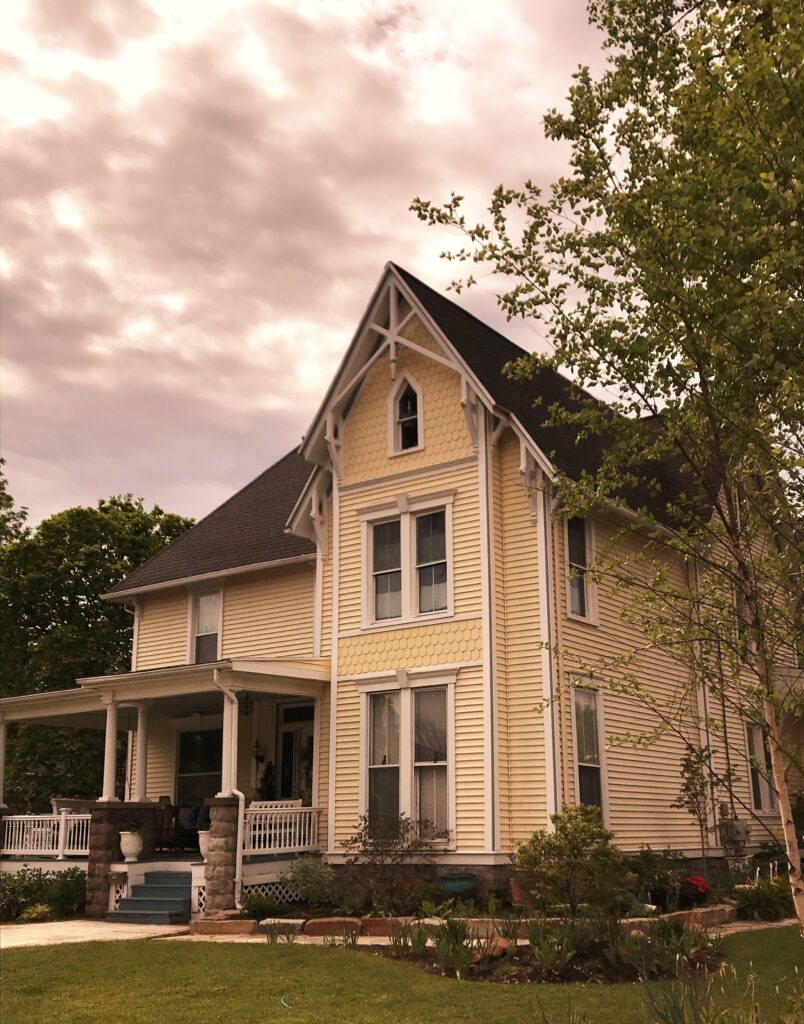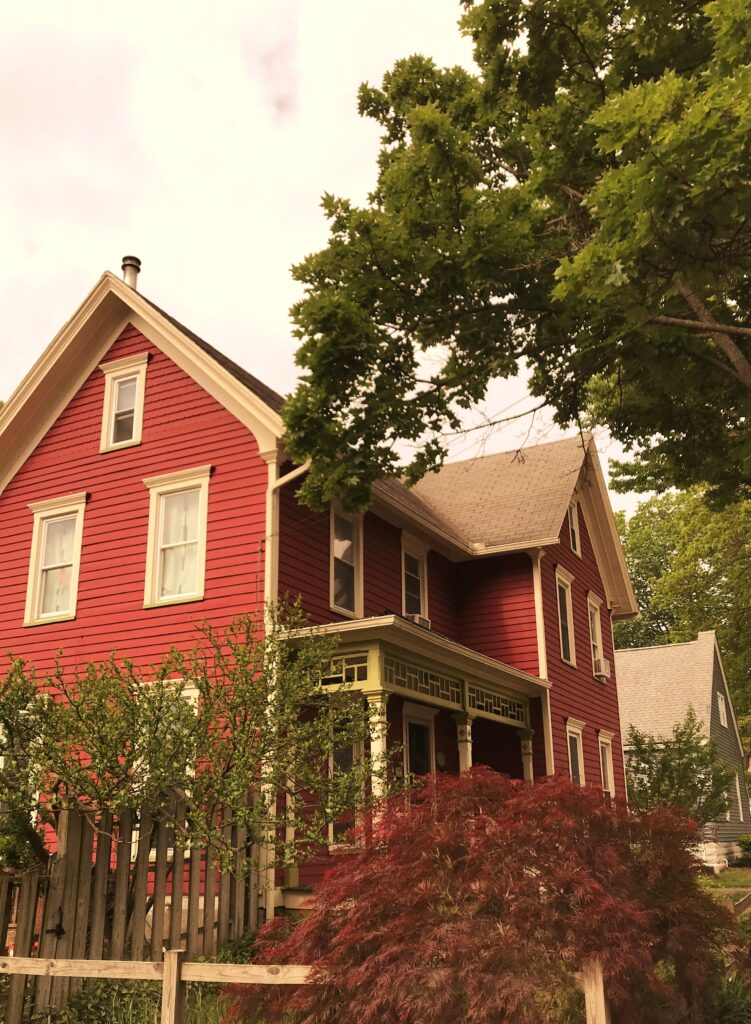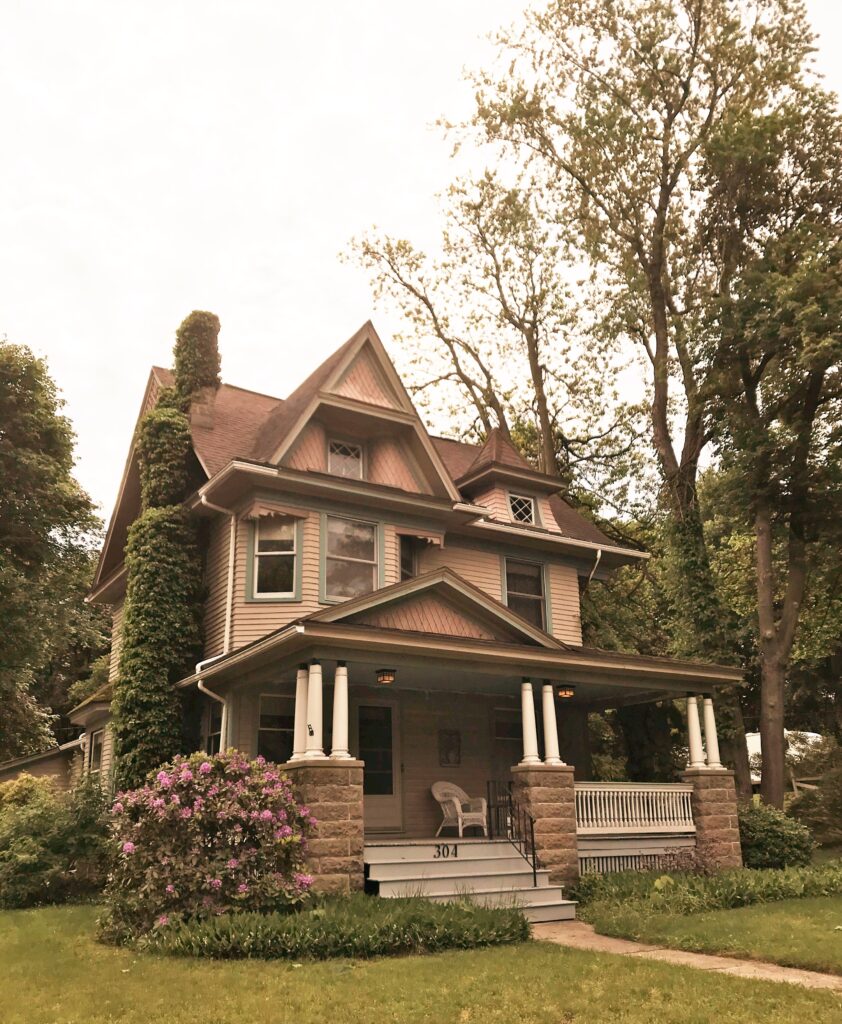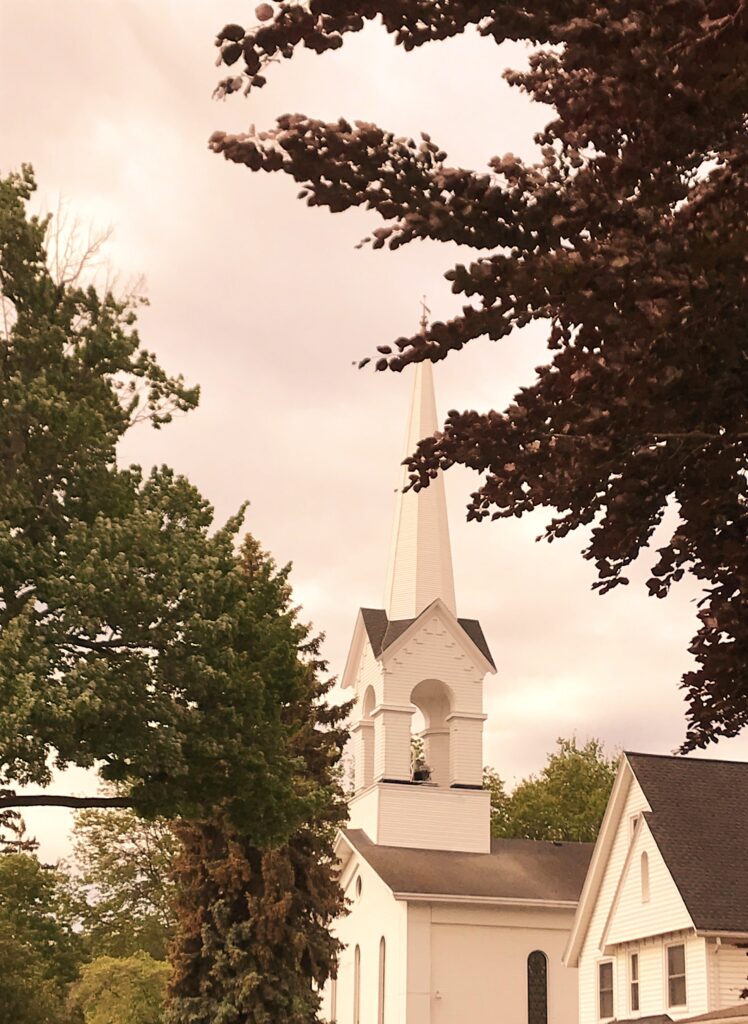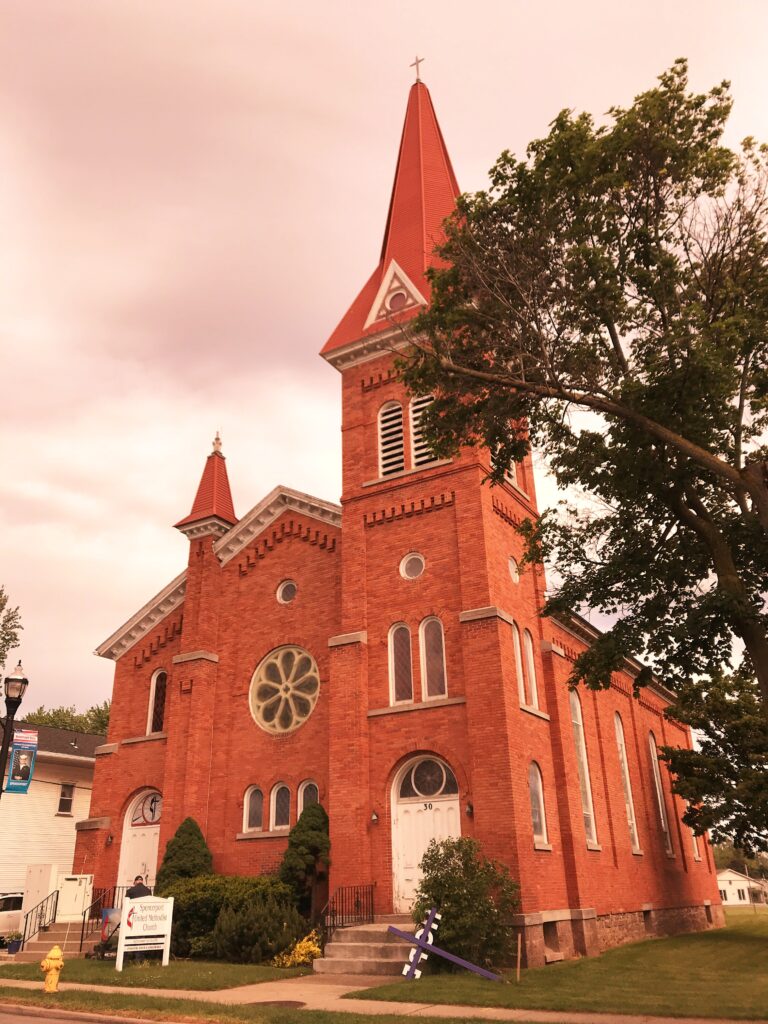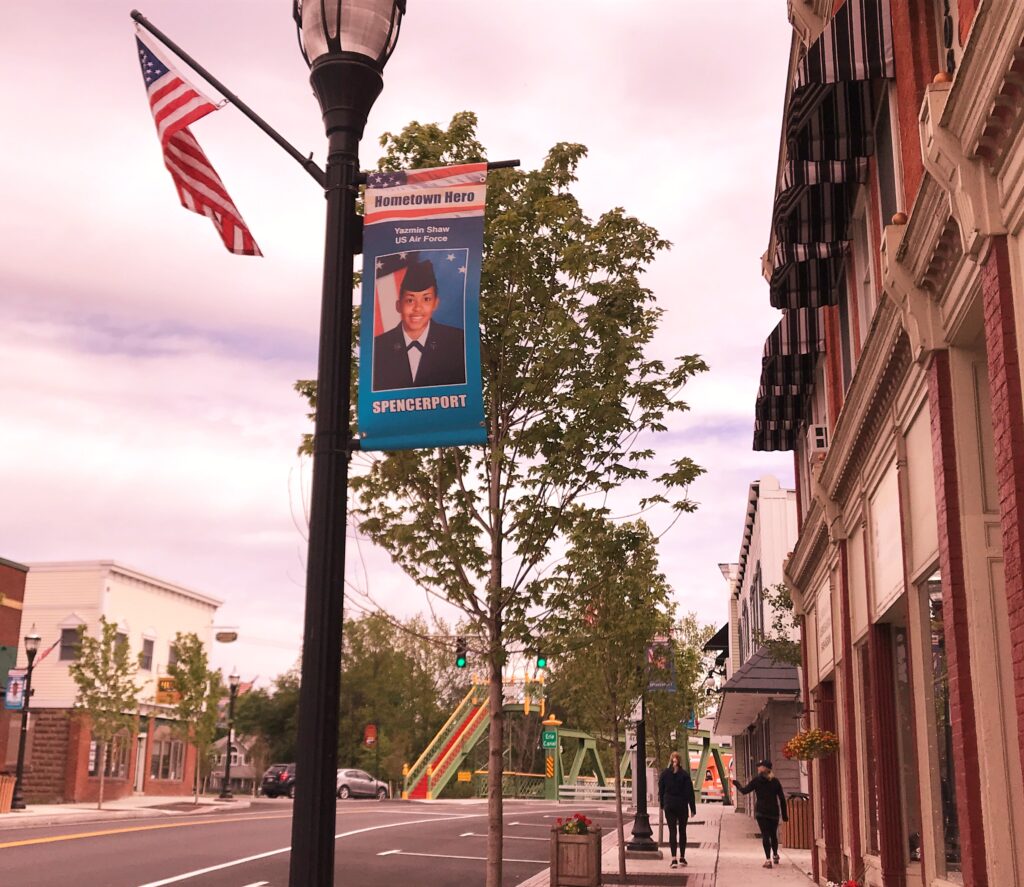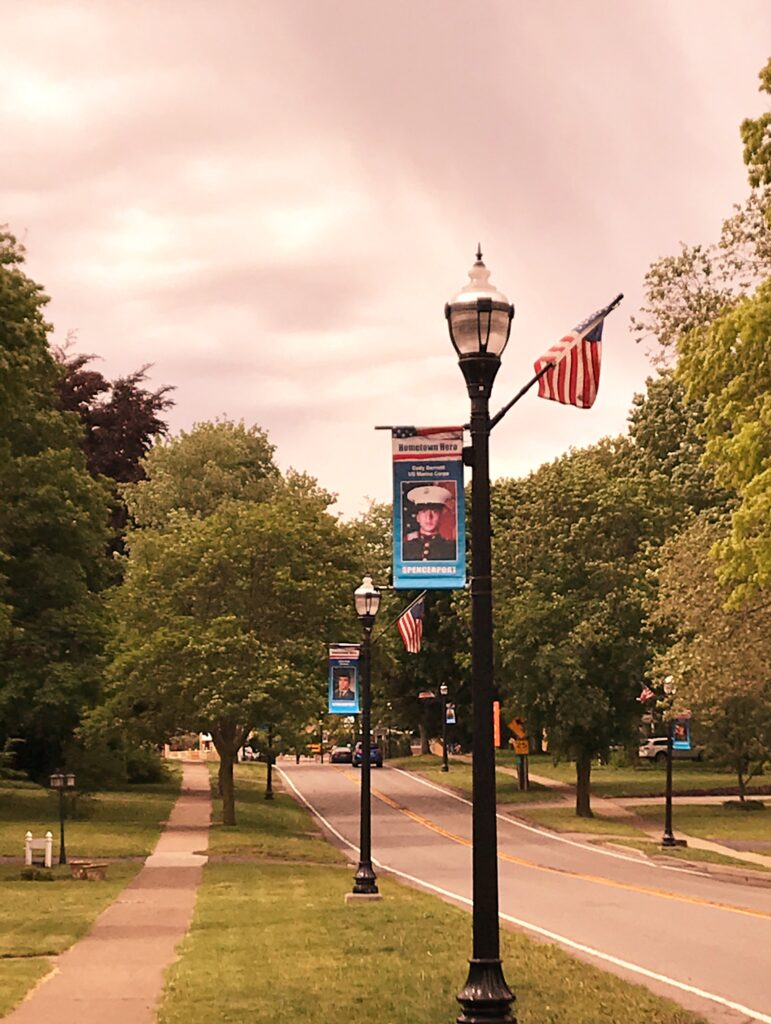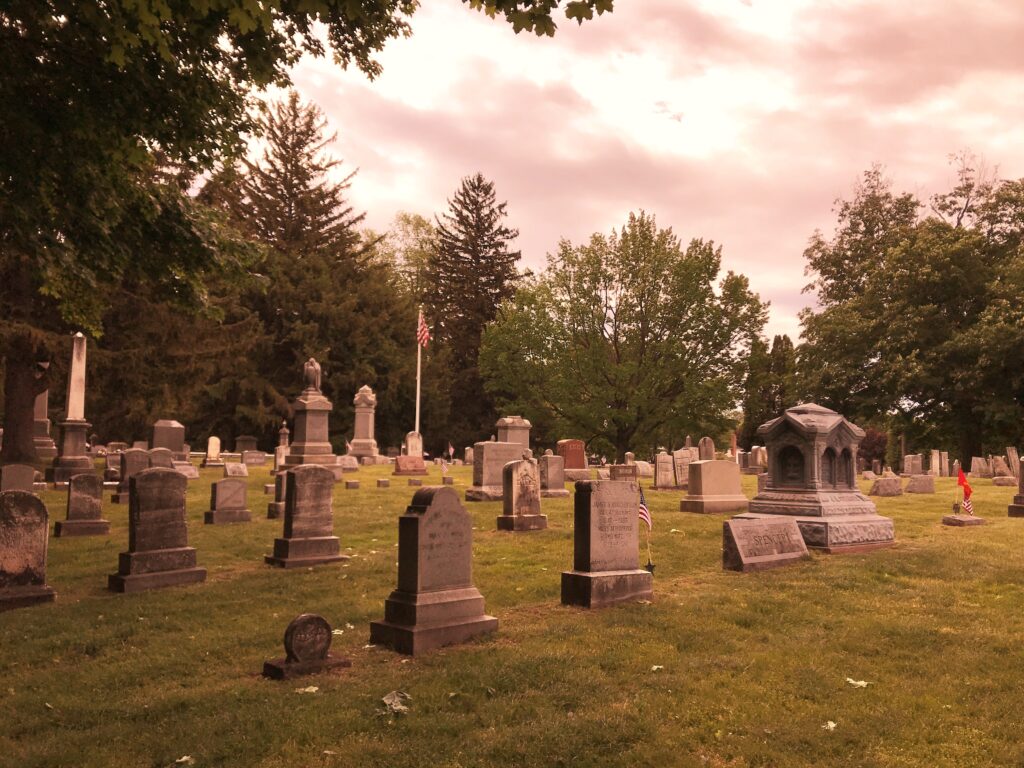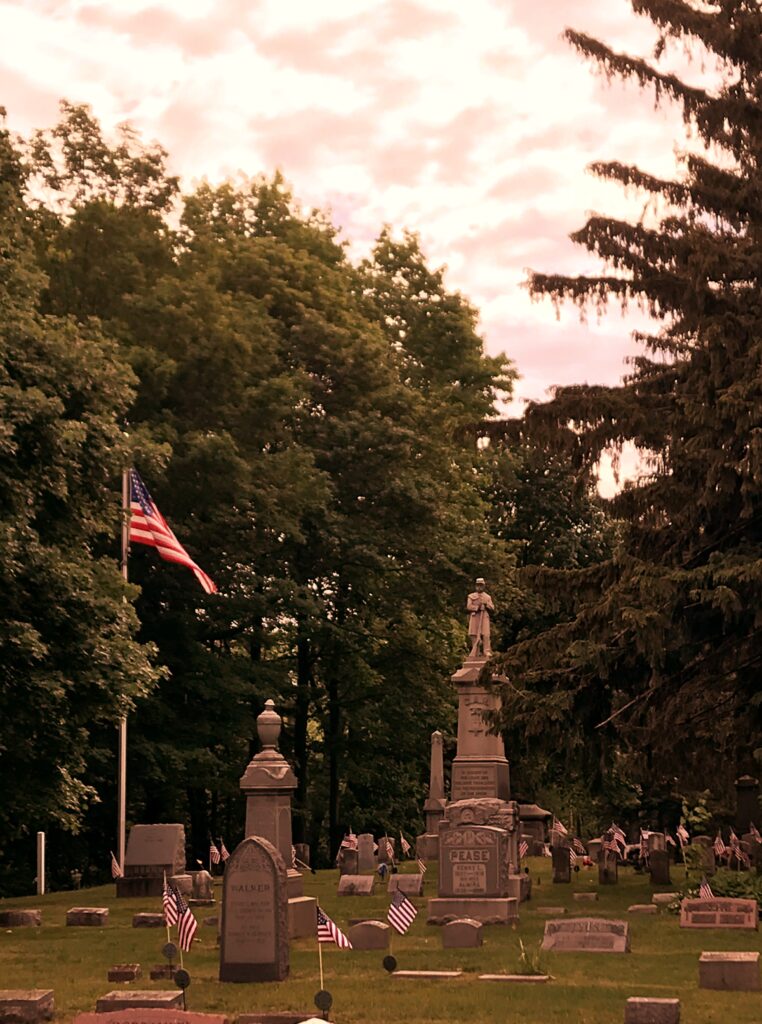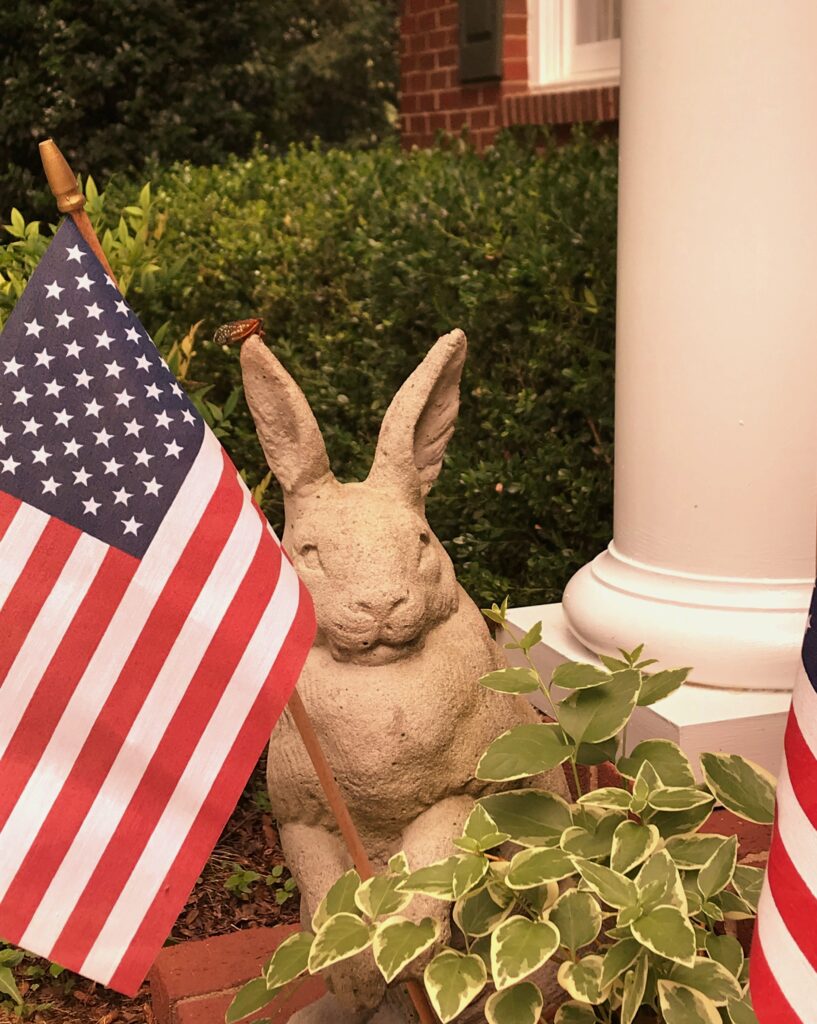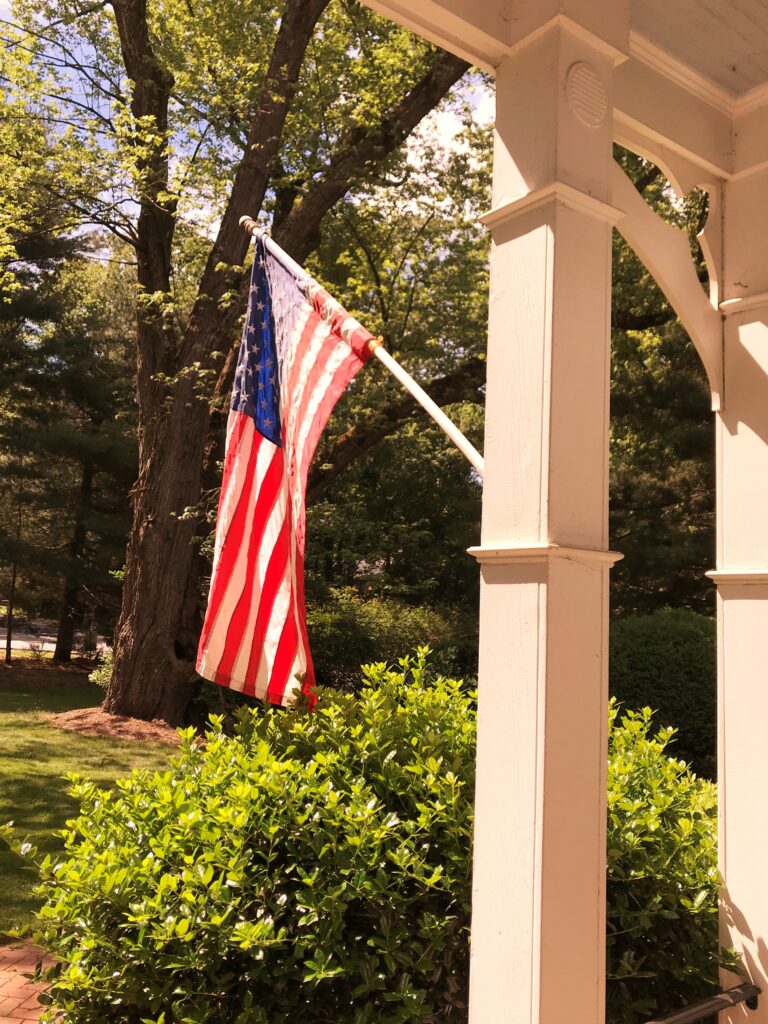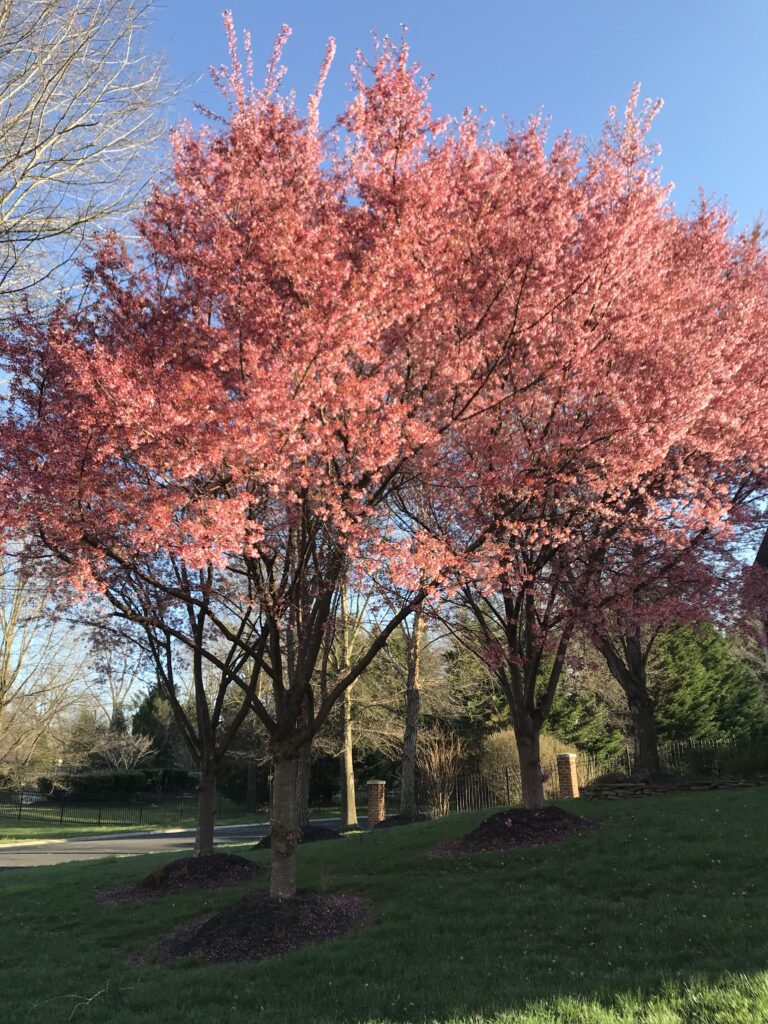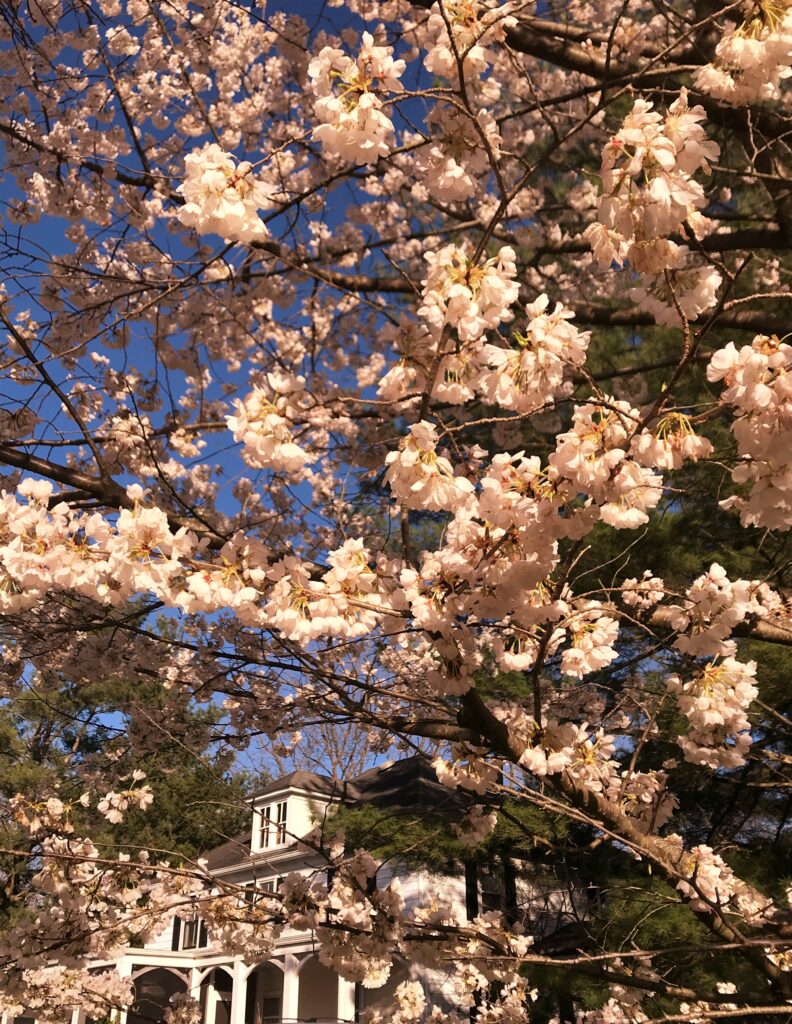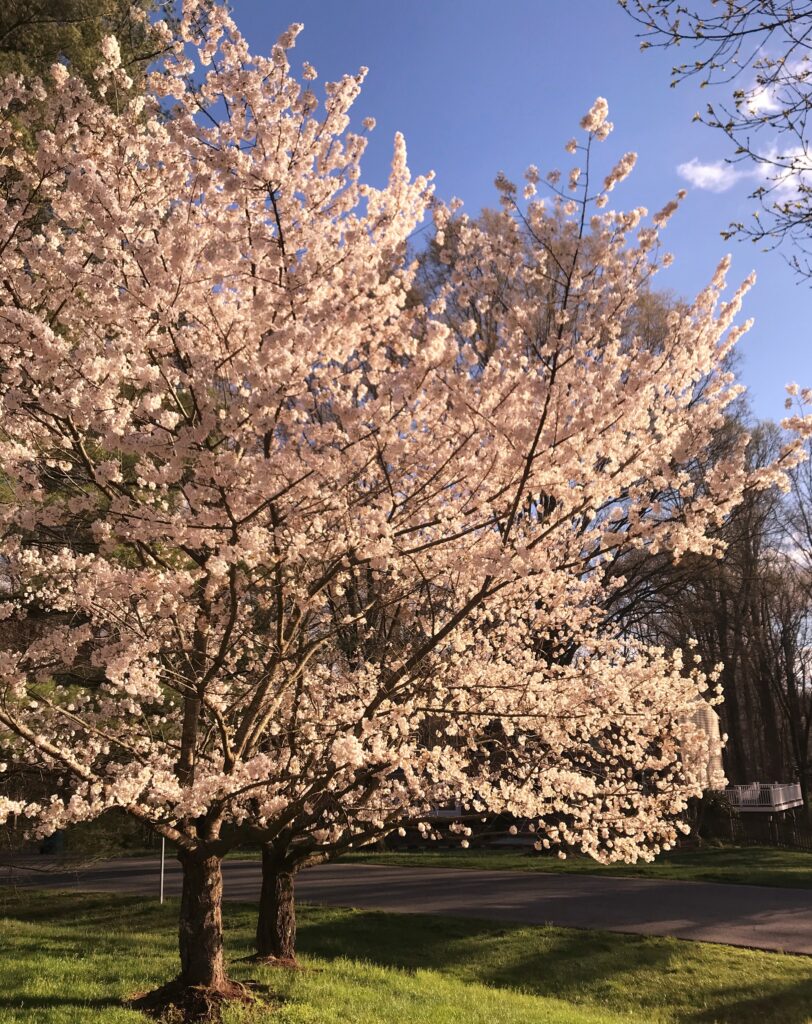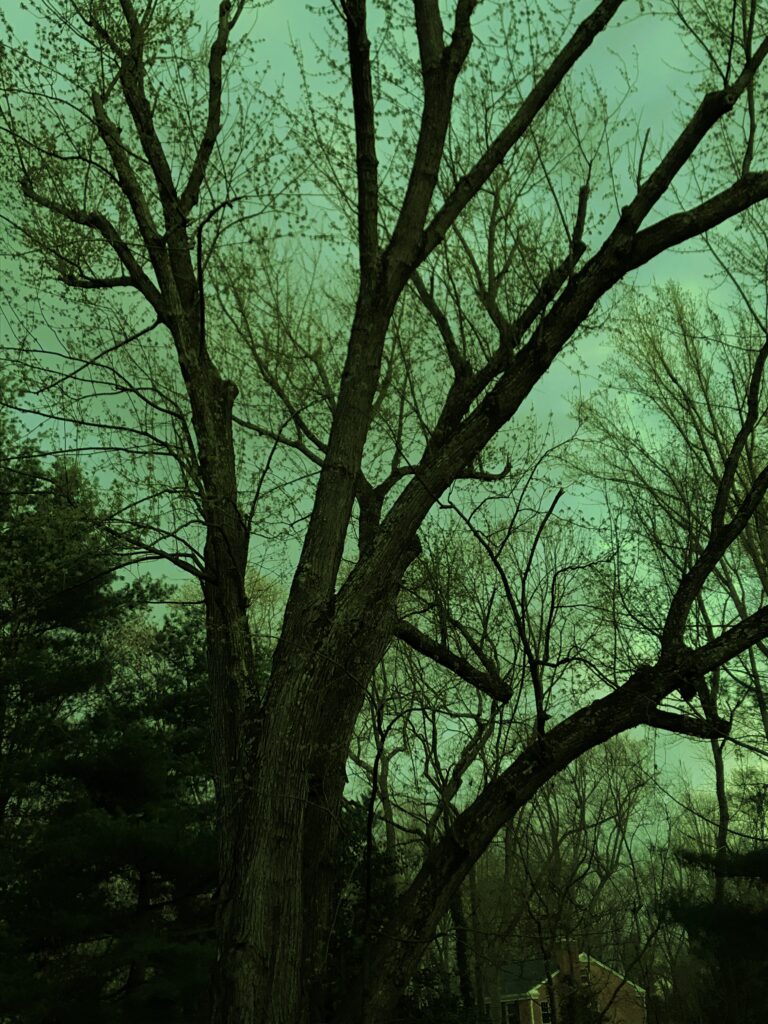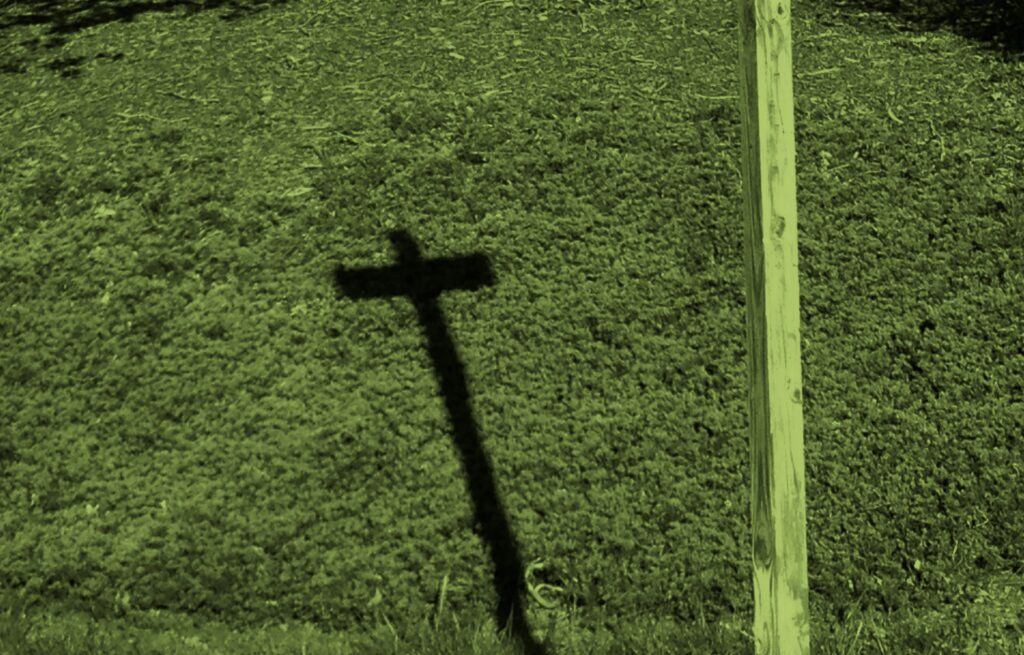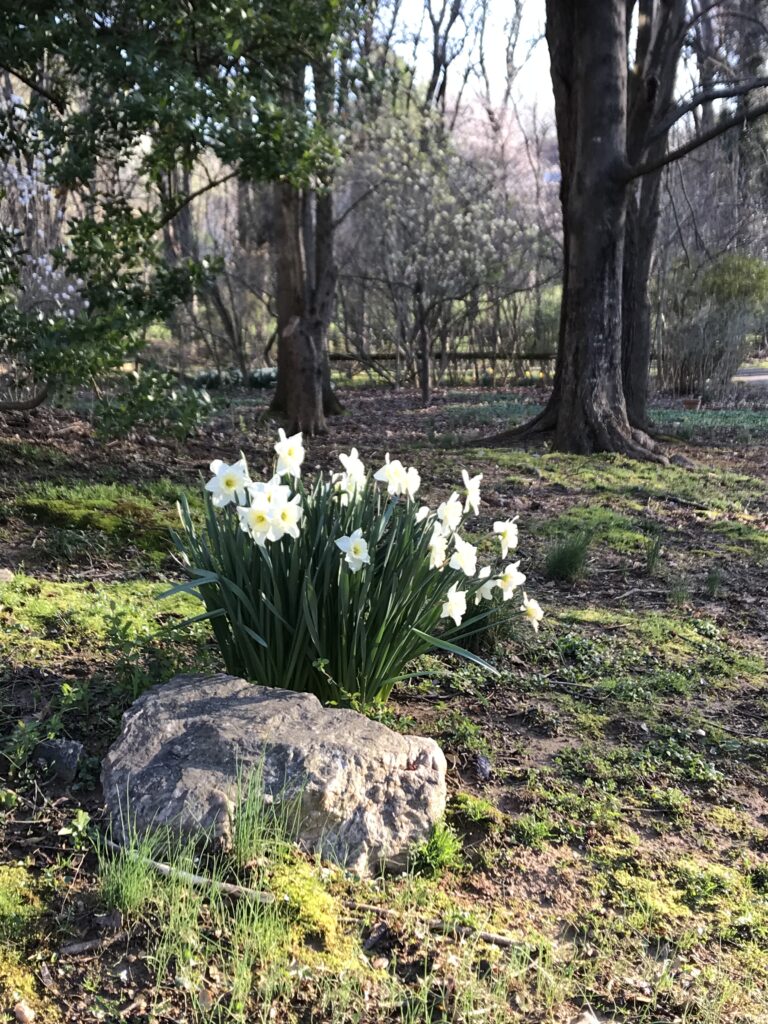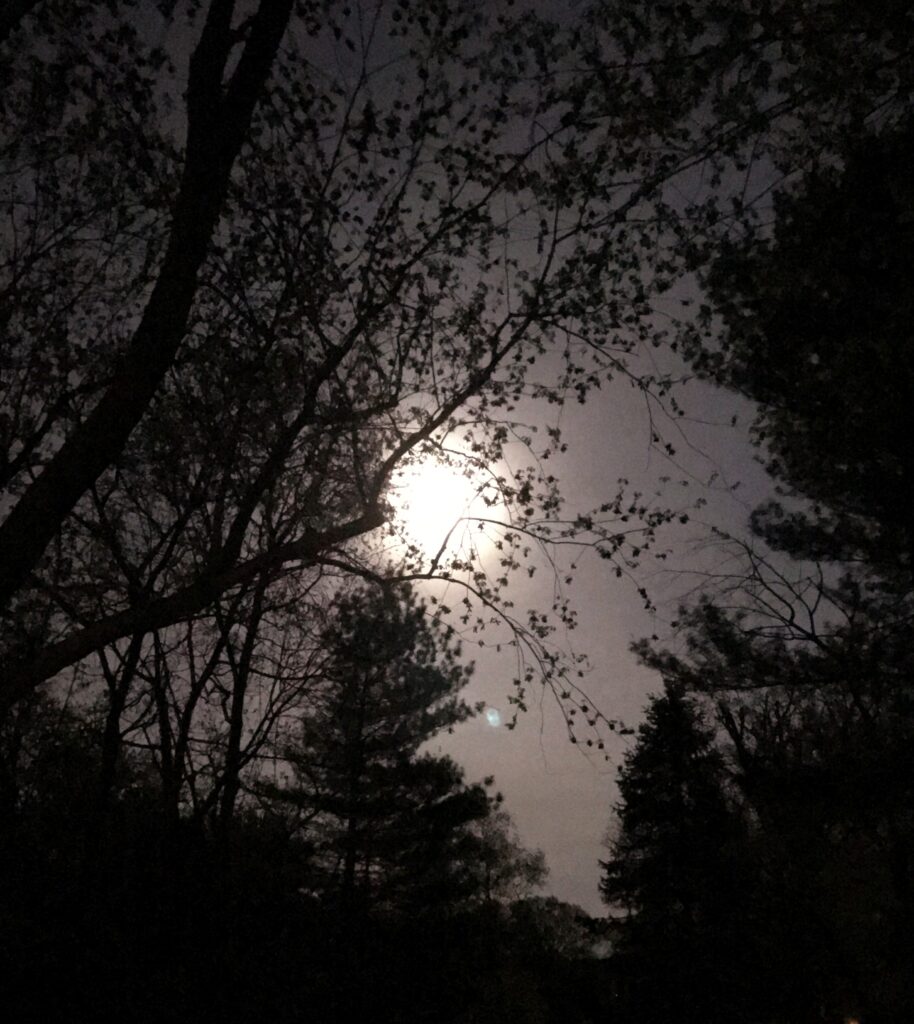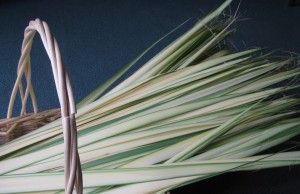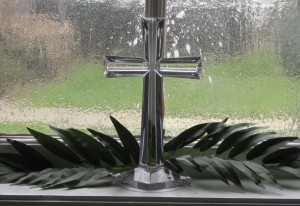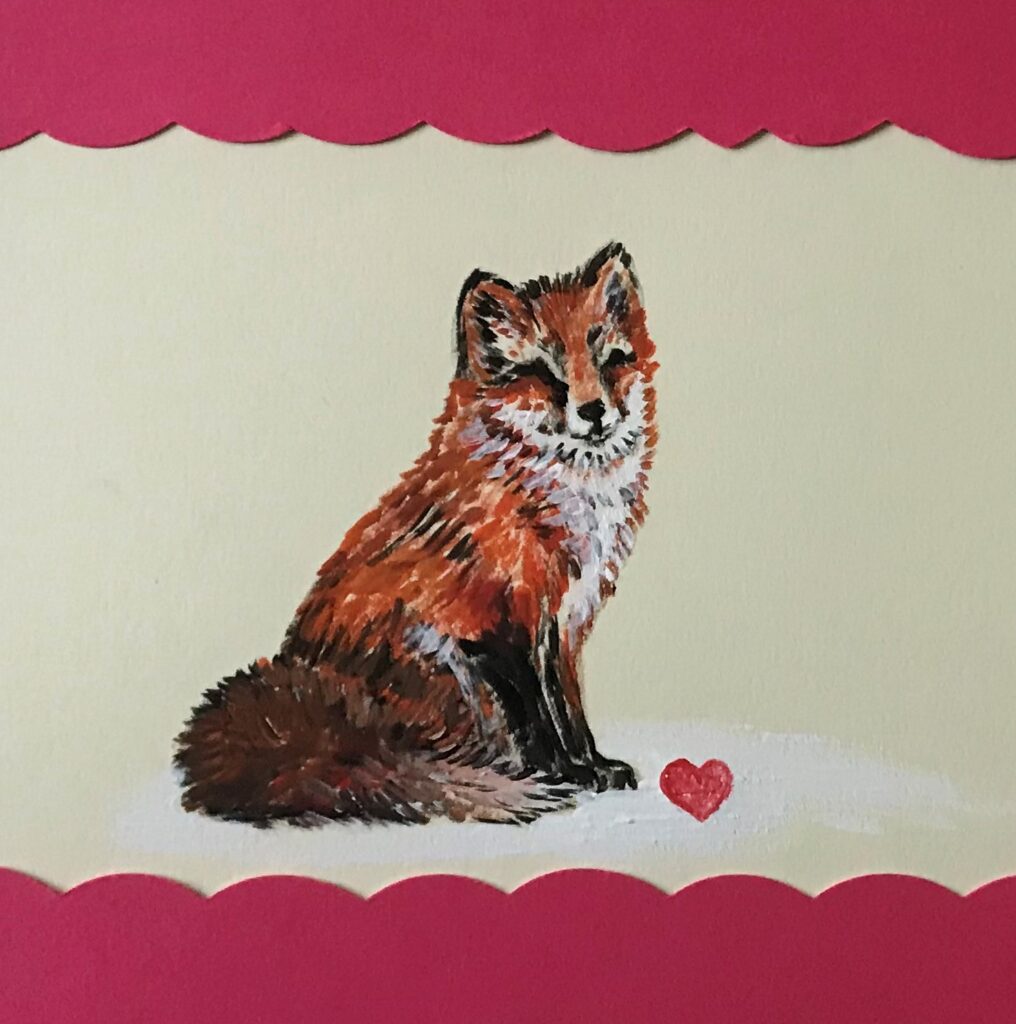On the 5th of July, had my dog not needed walking, I might have missed the spectacular beauty of the morning. There are days now when Kiko sleeps in, curled contentedly in his fluffy bed, oblivious to the sunlight flooding in around him. But on Monday, he was up early and ready to step out. Maybe he was feeling cocky after having finally realized that the terrible Fireworks Monster is not a big deal. This year, he wasn’t traumatized as in the past by the crackles and booms of our neighborhood celebration. Gradual hearing loss may have its good points. The noises seemed to make him marginally uneasy, but not nervous enough to pace the house in a restless search for consolation that is perpetually out of reach. Instead, he remained settled in his bed even after the fireworks began to pop. He seemed sufficiently relaxed so that I decided to join my family and friends for the show for the first time in years, instead of cocooning myself with my quaking dog in a curtained room with heavy blankets and a loud TV. On our return, Kiko greeted us with what I interpreted as an air of studied nonchalance. “I’m cool,” he seemed to say. “But no thanks to you. I know you left me alone.”
For whatever reason, Kiko was up early the following day, with a particular pep in his step, and so I was up and out, also, in time to witness the sparkling glory of the post-Independence Day morning. A golden haze suffused the air, and the sun’s rays were clearly visible, as in a child’s drawing. Kiko found it annoying that I kept stopping to take photos, which can’t quite capture the radiance of the morning. As we walked down our neighbor’s front walk after bringing the Washington Post to her door, the glowing light streaming through the trees resembled an image of the entrance to heaven. In the unusually peaceful quiet of the holiday morning (no rushing traffic, no typical suburban summer sounds of lawn mowing, tree cutting, leaf blowing and power washing) it could be appreciated without distraction.
Kiko’s interest, as always, lay in scents instead of sights. The fascinating smorgasbord of smells kept him briskly on the move as he led the way, with purpose, toward his favorite little park. By that time, the shimmering mist was dissipating, but there among the woods, it lingered still.
Kiko maintained a quick pace on our return. My elderly, slowly meandering dog was temporarily replaced by his former puppy self. When we reached the home stretch, he began to run. My knees resisted, but I did my best to keep up.
Once home, Kiko was soon cozily snuggled in his bed. The dog who emerges revived and invigorated after a long night of fireworks certainly deserves his rest.

